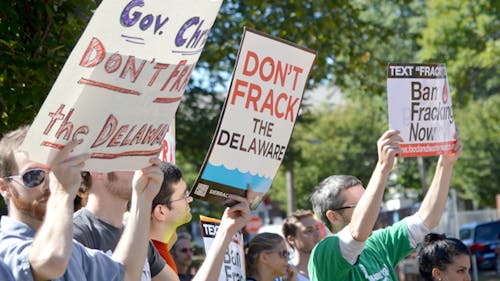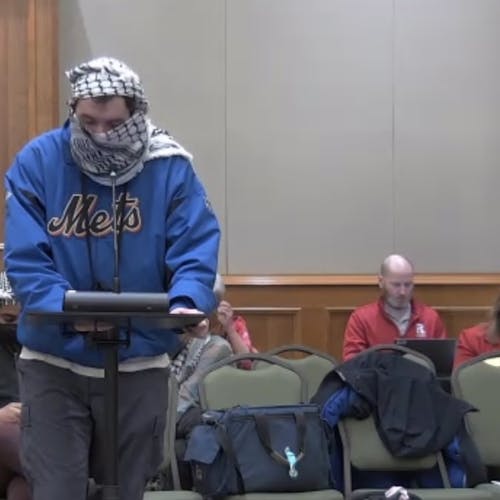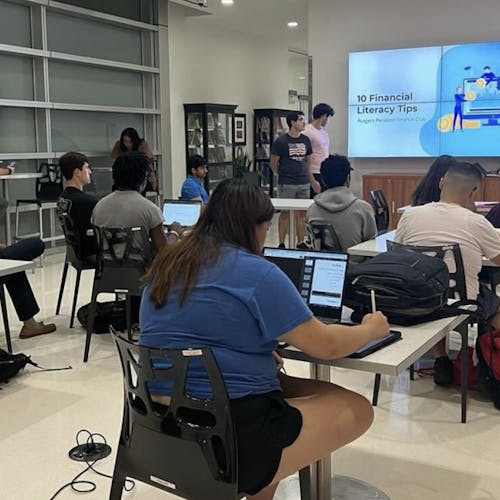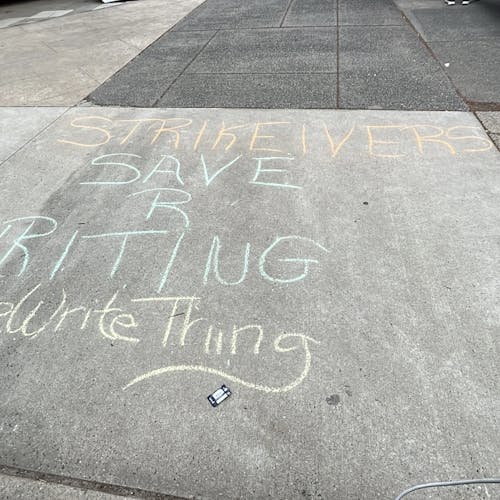Organization works with activists to curb fracking in Delaware river basin

Fracking is a process of extracting natural gas from shale rock that requires companies to drill below the water table and pump the earth with water, chemicals and sand. Climate change from fracking could contribute to a rising sea level and more frequent severe storms.
The New Jersey Public Interest Research Group is working with state activist groups to prevent fracking in the Delaware River Watershed.
According to a press release by NJPIRG, the organization is working with Rep. Rush Holt, D-12, to appeal to the Delaware River Basin Commission, which could prevent drilling in the area.
Olivia Harry, fracking coordinator for NJPIRG, said they were reaching out to students for tabling. So far, the organization has collected more than 700 signatures and has gotten 800 students to call Gov. Chris Christie’s office.
“NJPIRG has gotten students together to rally and get in contact with people,” said Harry, a School of Arts and Sciences senior.
The commission originally planned for a vote in March, but decided to put the issue on hold indefinitely, she said.
David Pringle, campaign director for New Jersey Environmental Federation, a chapter of Clean Water Action, said the commission includes representatives from Pennsylvania, Delaware, New York and New Jersey. Although the fracking would not occur in this state, residents would still feel the effects of development.
“Anyone who drinks the water or uses it recreationally would be affected,” he said.
Dan DeRosa, field organizer for Environment New Jersey, said 3 million New Jersey residents receive their water supply from the Delaware River. New Jersey itself has little resources for fracking, but he is concerned Pennsylvania corporations would infect the river with wastewater.
In Ohio, people have found toxic elements, such as barium and strontium, in their water, he said. A Duke University study found that fracking-contaminated water was 200 times more likely to have radioactivity.
“I don’t think fracking can be done safely,” he said. “It injects toxic materials into the ground.”
But the waste from fracking is exempt from hazardous waste law, as part of a national bill passed under the George W. Bush administration, he said. Holt is part of a bill that would revoke hazardous waste exemptions for the oil and gas industry.
Pringle said the process contaminates drinking water with methane, to the point where residents can light their water on fire.
Harry has experience with fracking’s dangerous effects, she said. Her aunt sold her backyard space to a fracking corporation.
Now the aunt cannot taste or smell, and her doctor believes the problems are tied to fracking contamination, Harry said.
She said loopholes in regulations have allowed corporations to release toxic chemicals into the air and into the ocean where they can harm ecosystems.
In a separate case, the New Jersey Legislature plans to vote soon on a bill that would ban importation of fracking wastewater into the state, DeRosa said. The bill passed two years ago with bipartisan support but was vetoed by the governor.
Advocates are hoping to bypass Christie’s veto with a two-thirds majority, he said.
New Jersey has already accepted 2 billion gallons of wastewater from Pennsylvania, he said.
Pringle said towns like Elizabeth have accepted fracking waste. He too is hopeful for a legislature override.
“The governor … is in bed with the Koch brothers and the fossil fuel industry,” he said.
He said fracking was not only immediately harmful, but contributed to global warming by releasing carbon into the atmosphere.
“One Sandy is more than enough,” he said.
He said the problem had to be solved at a local level, encouraging national and international efforts to follow.
Harry initially approached NJPIRG with her idea for a fracking initiative, and they provided her with resources. Now she is in Washington, D.C. working with Greenpeace.
She said she was passionate about the effects of fracking.
“It’s the biggest environment threat we’ve ever had,” she said.



